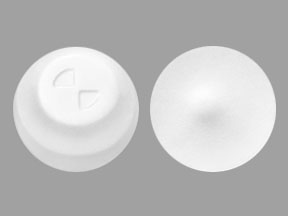
Nurtec Coupons & Savings Card – Discount Prices from $1015.58
My prescription
Edit
75MG, Nurtec (8 Tablet Disintegratings)
Select pharmacy

CVS
$1039.84
COUPON PRICE
Albertsons
$1015.58
COUPON PRICE
Walmart
$1049.16
COUPON PRICE
Walgreens
$1049.90
COUPON PRICENurtec savings card
Show this card to your pharmacist
Albertsons
$1015.58
BIN
ID
PCN
GRP
015995
LHKPX743153
GDC
DR33
Powered by
Related CGRP receptor antagonists prescriptions
More prescriptions for migraine
Related CGRP receptor antagonists prescriptions
More prescriptions for migraine
Price history for Nurtec
8 Tablet Disintegratings, 75MG
Average retail price for Nurtec
Average SaveHealth price for Nurtec
Our price history data is based on aggregated prescription data collected from participating pharmacies in America. Our prescription data updates daily to reflect the latest price changes. If you notice a missing data point, it means there wasn't sufficient data available to generate a monetary value for that date.
*Retail prices are based on pharmacy claims data, and may not be accurate when we don't have enough claims.
Nurtec dosage forms
Dosage Quantity Price from Per unit 75MG 8 Tablet Disintegratings $1039.84 $129.98
| Dosage | Quantity | Price from | Per unit |
|---|---|---|---|
| 75MG | 8 Tablet Disintegratings | $1039.84 | $129.98 |
What does the drug Nurtec do?
Nurtec (rimegepant) is a medication used to treat migraine headaches. It is effective in both acute treatment of migraine attacks and prevention of episodic migraines. Nurtec works by blocking the CGRP receptor, which is involved in the development of migraine symptoms. It is taken orally and can help alleviate pain and other migraine-related symptoms.
Why is Nurtec so expensive?
The cost of Nurtec can be attributed to several factors. It is a relatively new medication, and the research and development costs for bringing it to market are significant. Additionally, the pricing may reflect the clinical benefits it provides for migraine treatment. Patents and market exclusivity can also play a role in the pricing, as they limit competition from generic versions. Furthermore, the cost may be influenced by the pharmaceutical company's pricing strategy and the healthcare system's reimbursement policies.
Does Nurtec have bad side effects?
Nurtec ODT (rimegepant) can have side effects, though not everyone experiences them. Common side effects include nausea and stomach pain or indigestion. Serious side effects are rare but can include allergic reactions such as rash, itching, or swelling, particularly of the face, tongue, or throat, and difficulty breathing. If any severe side effects occur, it is important to seek medical attention promptly. It is always advisable to discuss potential side effects with a healthcare provider before starting any new medication.
What is the difference between triptans and Nurtec?
Triptans and Nurtec (rimegepant) are both used to treat migraines, but they work differently. Triptans, such as sumatriptan and rizatriptan, are serotonin receptor agonists that help relieve migraine symptoms by constricting blood vessels and blocking pain pathways in the brain. They are typically used for acute migraine attacks.Nurtec, on the other hand, is a CGRP receptor antagonist. It works by blocking the calcitonin gene-related peptide (CGRP) pathway, which is involved in migraine pathophysiology. Nurtec can be used both for the acute treatment of migraines and for preventive treatment, depending on the dosing regimen.In summary, the main difference lies in their mechanism of action and their use in both acute and preventive treatment for Nurtec, while triptans are primarily for acute relief.
Is Nurtec hard on kidneys?
Nurtec ODT (rimegepant) is not specifically known to be hard on the kidneys. However, patients with severe renal impairment should use it with caution, and it is not recommended for those with end-stage renal disease. It is always important for individuals to consult with their healthcare provider to assess their specific health conditions and any potential risks associated with their medications.
